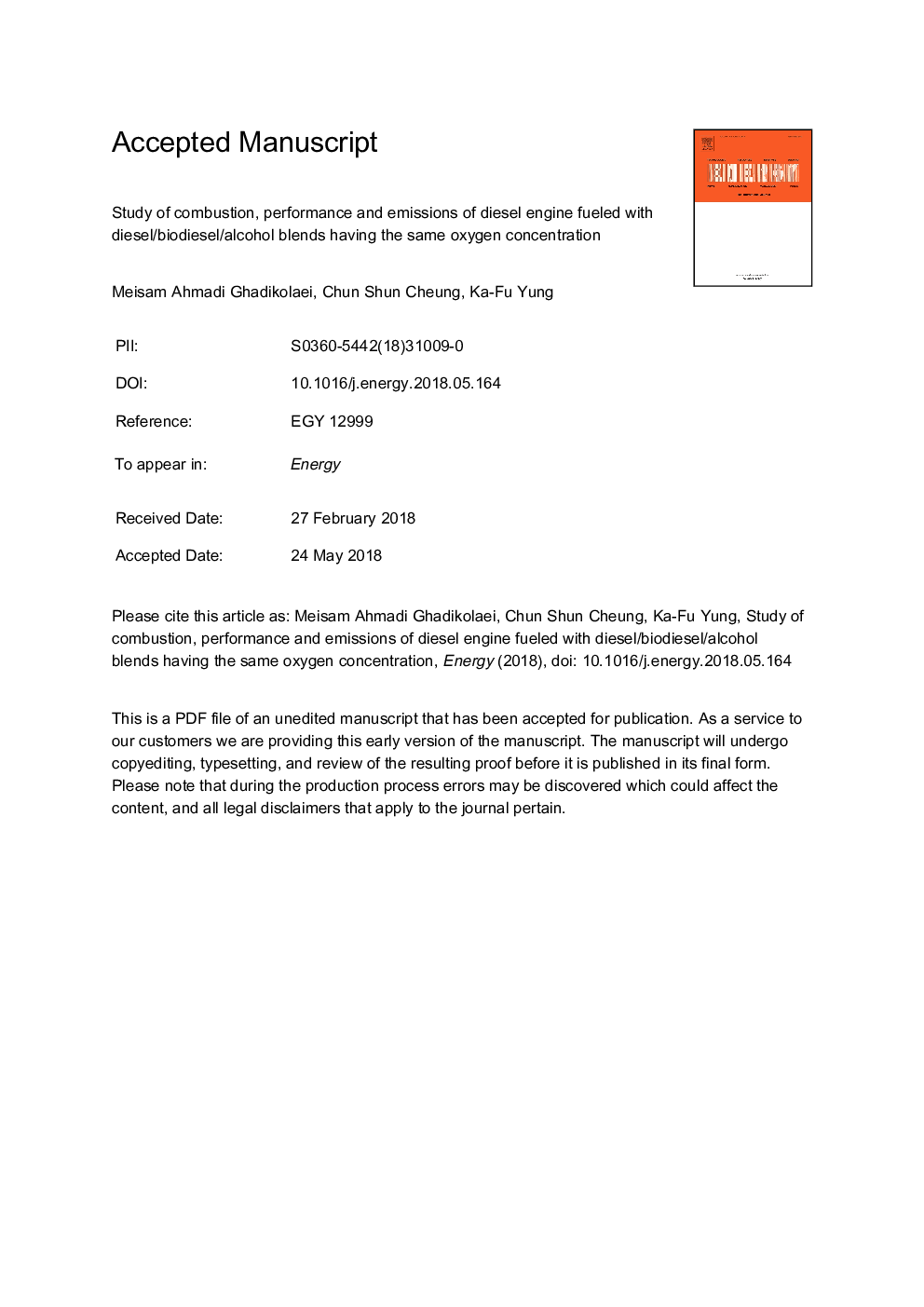| Article ID | Journal | Published Year | Pages | File Type |
|---|---|---|---|---|
| 8071219 | Energy | 2018 | 29 Pages |
Abstract
According to the average results of five loads, the blended fuels in general cause to (a) increases in peak HRR (except DB), ignition delay (except DB), COVIMEP (except DBM), COV Max(dP/dθ) (except DB and DBM) and BSFC; (b) slight decrease in duration of combustion (except DB); and (c) similar peak in-cylinder pressure and BTE (except DBM and DBBu) compared to diesel fuel. Moreover, all the blended fuels lead to reductions in CO2 (except DB), CO, HC, NOX (except DB), PM, total number concentration (except DBPr) and geometric mean diameter, compared to diesel fuel. Overall, DBM shows the highest BTE, the lowest BSFC, and the lowest CO2, CO, HC, PM, NOX (after DBPr), COVIMEP and COV Max(dP/dθ) (after DB), while DB has the lowest influence, among all the tested blended fuels.
Keywords
Related Topics
Physical Sciences and Engineering
Energy
Energy (General)
Authors
Meisam Ahmadi Ghadikolaei, Chun Shun Cheung, Ka-Fu Yung,
